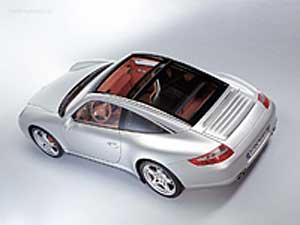Sorry to be a bore about this (er, see here, here and here) but the recent ICM poll for the Guardian confirms my suspicion — that Labour won’t win the next election if they are led by Gordon Brown.
Gordon Brown is failing to persuade the public that he would make a better prime minister than David Cameron, according to a Guardian/ICM poll published today which suggests the Conservatives could win a working majority at the next general election.
Voters give the Tories a clear 13-point lead when asked which party they would back in a likely contest between Mr Brown, Mr Cameron and Sir Menzies Campbell.
The result would give the party 42% of the vote against Labour on 29%, similar to its performance under Michael Foot in 1983. The Liberal Democrats would drop to 17%. The result is the highest that the Conservatives have scored in any ICM poll since July 1992, just after their last general election victory…
The Economist‘s Bagehot column has some interesting reflections on this.
Three quite big and important things appear to be going on. The first is that a sort of positive feedback loop has been established in which the long-standing misgivings about Mr Brown within his own party are now being projected back to it by the voters. Senior Labour figures glumly go through the motions of declaring in public their utter confidence in Mr Brown’s prime-ministerial credentials. He is the most successful chancellor of the exchequer since records began, a political heavyweight of towering intellectual stature and soaring moral purpose. It’s a testimonial just close enough to the truth not to provoke sniggers, but they and we know it’s only half the story. What increasingly worries ministers, and those Labour MPs in southern seats whose majorities hang by a thread, is that, unless he can reveal a different side to his personality, dour, stiff, slightly odd Mr Brown will struggle to reach those aspiring middle-class voters whom Mr Blair could still just about deliver in 2005.
The second big thing is that the mood of the electorate seems to be swinging from apathetic boredom and irritation with the government to a feeling that maybe it’s time for a change. If that is right, Mr Brown, for all his admirable qualities, is the last person on earth who can deliver it. However much Mr Brown and his supporters insist that Labour will look very different when he is prime minister, the fact is that Mr Brown is universally recognised as the joint-architect of the government’s successes and failures. It is hard to see what sort of meaningful fresh start Mr Brown can offer.
That was the argument made last week by Frank Field, an independent-minded Labour MP. Mr Field reminded his colleagues that the Tories were able to win a remarkable fourth successive election partly because Margaret Thatcher’s replacement, Mr Major, emerged from nowhere. Even Mrs Thatcher, who backed Mr Major’s leadership bid, had only the haziest idea what he was really like (and was bitterly disappointed when she found out). But it meant that the Tories were able to claim plausibly that by choosing the obscure, untainted Mr Major they had already given the voters the change they demanded.
Mr Field went on to suggest that if Labour was serious about winning it should thank Mr Brown for his outstanding service and move on to the next generation in the shape of David Miliband, the 41-year-old environment secretary who for some time has been uncomfortably cast in the role of next-leader-but-one. That is where Mr Field’s line of reasoning runs out of steam…
Agreed. Miliband is a nice lad (and he’s driven around in a Prius), but not Premiership material. Labour’s problem is that they have nobody else in Cameron’s generation who has leadership potential. Game over, I suspect.

